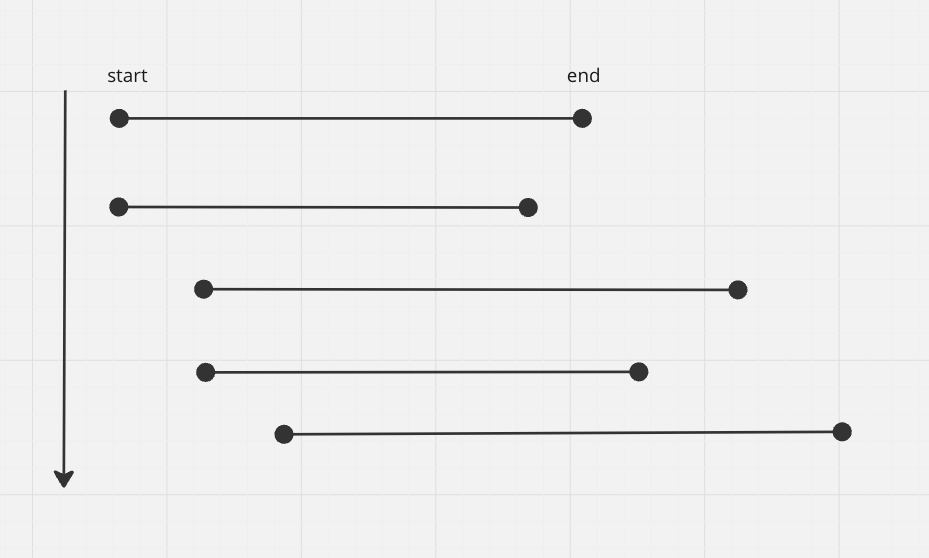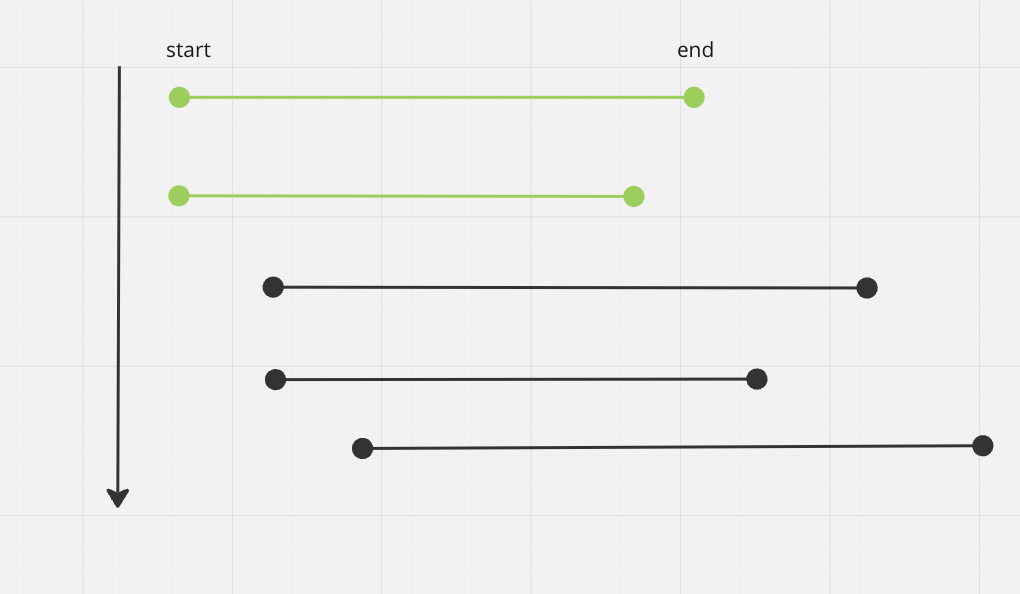Non Overlapping Intervals
Question
Given an array of intervals intervals where intervals[i] = [start_i, end_i], return the minimum number of intervals you need to remove to make the rest of the intervals non-overlapping.
Note: Intervals are non-overlapping even if they have a common point. For example, [1, 3] and [2, 4] are overlapping, but [1, 2] and [2, 3] are non-overlapping.
Example 1:
Input: intervals = [[1,2],[2,4],[1,4]]
Output: 1
Explanation: After [1,4] is removed, the rest of the intervals are non-overlapping.
Example 2:
Input: intervals = [[1,2],[2,4]]
Output: 2
Solution
This is a question where we can apply greedy. Imagine you have the following intervals:
The first thing that we can do is to sort these intervals based on the start number. Otherwise it's hard to be able to know which one came first, which one came second.
Once sorted, you will have something like this:

Imagine this will be our array, sorted from the order increasing (display vertically).
All the intervals with smaller start will be first, doesn't matter the end.
When we go through these intervals, we will then need to select a strategy to pick which one.
For example, when comparing this one:

We will prioritise the one with lower end first because it can fits more interval in.
Imagine if we have something like this:

Chosing the red one would not work because it overlap. Since the question is asking for minimum number,
So:
- If it's overlap with the previous interval, we choose the one with lower end
- Else, we keep going and keep track of new previous interval
Implementation
class Solution:
def eraseOverlapIntervals(self, intervals: List[List[int]]) -> int:
intervals.sort(key = lambda x: x[0])
lastInterval = None
numberOfNotMergable = 0
for interval in intervals:
if not lastInterval:
lastInterval = interval
continue
if self.overlap(interval, lastInterval):
numberOfNotMergable += 1
lastInterval = self.pick(interval, lastInterval)
else:
lastInterval = interval
return numberOfNotMergable
def overlap(self, interval, mergedInterval):
if not interval or not mergedInterval: return False
startA, endA = interval
startB, endB = mergedInterval
return not (startA >= endB or startB >= endA)
def pick(self, interval, lastInterval):
startA, endA = interval
startB, endB = lastInterval
if endB < endA: return lastInterval
return interval
Time complexity:
Space complexity:
Note: in the overlap algorithm here, We consider the case that if startA == endB it's not overlap as of the condition from the question.
For example these intervals are valid: [3,5][5,7]